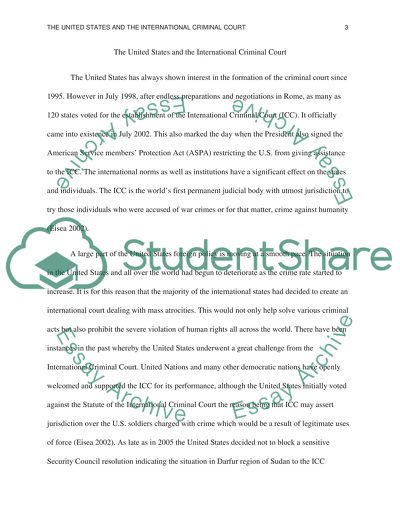Cite this document
(“The United States and the International Criminal Court Research Paper”, n.d.)
The United States and the International Criminal Court Research Paper. Retrieved from https://studentshare.org/law/1457935-the-united-states-and-the-international-criminal
The United States and the International Criminal Court Research Paper. Retrieved from https://studentshare.org/law/1457935-the-united-states-and-the-international-criminal
(The United States and the International Criminal Court Research Paper)
The United States and the International Criminal Court Research Paper. https://studentshare.org/law/1457935-the-united-states-and-the-international-criminal.
The United States and the International Criminal Court Research Paper. https://studentshare.org/law/1457935-the-united-states-and-the-international-criminal.
“The United States and the International Criminal Court Research Paper”, n.d. https://studentshare.org/law/1457935-the-united-states-and-the-international-criminal.


